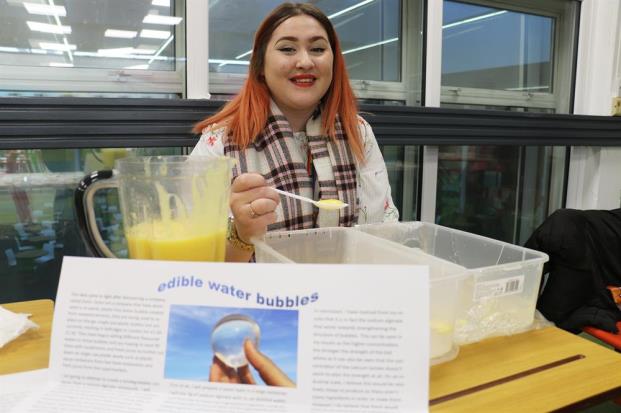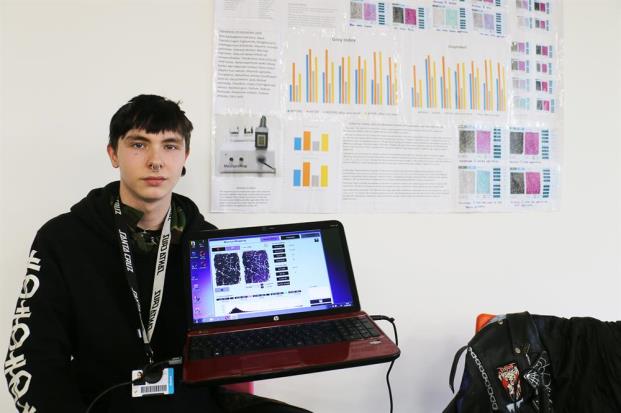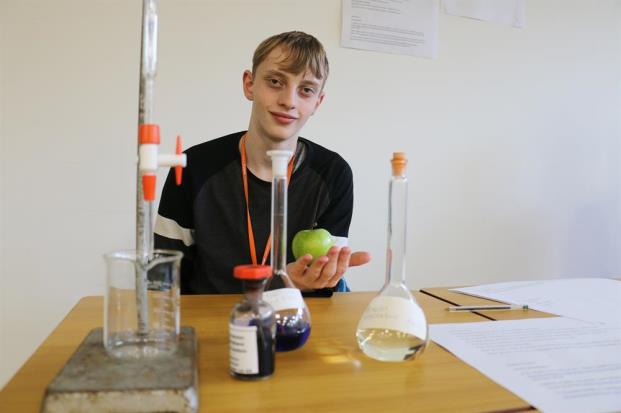Posted: 25/02/20
Scientists put on a real show
An exhibition of young scientists’ experiments and research was on display this month at West Nottinghamshire College.
-

Katy Guy's drink bubble experiment was driven by her enthusiasm to create less waste plastic
-

Corey Cheetham based his project on how well the skin absorbs moisture
-

Aiden Keane tested a range of fruit and vegetables for their vitamin C content
Learners on the BTEC Extended Diploma in Applied Science (Forensic Science) have been working diligently putting together personalised research projects using the science-based skills they’ve learnt so far on the diploma.
One experiment saw Cory Cheetham, 18, testing how the application of moisturiser affects different skins. He set up a panel of volunteers in a room with a set thermostat, who applied a fixed measure of moisturiser each day and their moisture levels were recorded on a machine which was loaned from a specialist company.
Eighteen-year-old Katy Guy’s project was driven by her wish to reduce plastic waste and she recreated a biodegradable orange juice drink bubble based on a water bubble which has been created for people to use in sports. She used xanthium gum, calcium lactate and a sodium alginate bath to create the gel bubble in which the juice was suspended.
Aiden Keane, 18, set up an experiment to test how much vitamin C was contained in a range of fruit and vegetables. His method saw him cutting up the food into 100g pieces, grinding them with a mortar and pestle in a water base and using chemicals to record a colour change during titration.
Aiden said: “I realised that I could change this experiment and test many different things such as the food’s starch content or vitamin A value. It was really interesting and great practice with chemistry skills. Eventually I’d like to go into microbiology for a career.”
Other students’ experiments included discovering how decomposition of materials is affected by different weather conditions, the degradation of teeth from different soft drinks, testing the radiation penetration power using different materials, the effects of different alcohol on the liver and the effects of music on performance.
Tutor Melanie Pykett said: “This group of students showed such a broad range of scientific experiments and they’ve learnt such a lot. They discovered how to design a practical from scratch, test out a hypothesis and also see the many difficulties that are often behind setting up a project.
“They’ve had to be mindful in getting their controls and conditions right and have learnt about the things which can go wrong. When a practical experiment didn’t deliver what they thought it would, they have had to think through what they could do next or what this means against their original hypothesis.
“It’s all been great experience and they’ve had to liaise with employers regarding borrowing equipment as well as describe their projects to other students and visitors.”